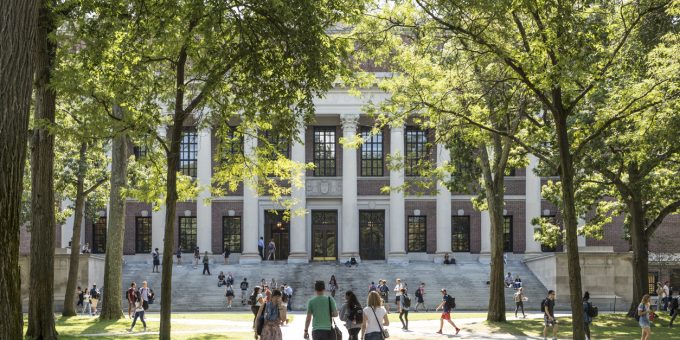
iStockPhoto // travelview
After College for All: The Expectations of Struggling College Graduates
For years, we have been inundated with messages about the importance of obtaining a college degree. Popular narratives portray the journey to and through college as the pathway to success—professional, economic, and personal. These narratives, which form part of what Tressie McMillan Cottom has described as the “education gospel,” undergird ideologies such as College for All, a perspective that all students should be guided in the direction of college attendance and graduation, including through school policies and government initiatives. While often discussed in the context of American education, similar narratives emphasizing the benefits of a college degree have been present in many other countries worldwide.
To be clear, these narratives have a basis in reality: on average, college graduates have higher wages, lower unemployment, better health, and more stable family lives than people without college degrees. But as my research reveals, these outcomes are not guaranteed.
As an undergraduate, I fully bought into narratives about college as the pathway to success. However, after graduating and moving to Spain to teach, I began to witness the reality that these narratives overlooked as I encountered many young graduates who were struggling to gain a foothold in the labor market and establish financial independence from their parents. Later, in graduate school, I learned how the experiences of these young Spanish graduates fit into broader demographic realities. Due to growing employment precarity, stagnant wages, high inflation, and rising costs of higher education and housing, many young college graduates around the world simply aren’t experiencing the benefits promised by the education gospel.These realizations prompted further questions. In the face of powerful narratives about the benefits resulting from college graduation, I wondered, how did struggling young college graduates interpret their own less “successful” outcomes? How did they understand their social positions and worth? And how did their experiences in higher education shape these understandings?
In a recent paper published in Sociology of Education, I examine these questions through the perspectives of 127 young college graduates (aged 25-34) in the United States and Spain—all of whom were experiencing post-graduation insecurity (e.g., unemployment, unstable employment, debt, low wages, etc.). Despite major differences between the two national contexts, such as the much higher rate of youth and young adult unemployment in Spain and the much higher cost of higher education in the United States, I found a startling similarity among respondents in both countries: most understood themselves as “stuck.”
The young graduates’ feelings of being stuck stemmed from the mismatch between their expectations for life as high-status college graduates and their experiences of insecurity post-graduation. I call this state “expectational liminality.” As Manuel, an unemployed Spanish graduate, reflected, ‘‘[After] five years of college, a master’s…you think the market will give you a thousand opportunities to work when you enter the workforce. And that’s when a wall hits your face.” Respondents saw themselves as having transitioned from being college students—yet they felt they had not attained the lives expected of college graduates.But why did these young adults have such high expectations for their post-college trajectories in the first place? My interviews revealed that graduates’ high expectations stemmed from three powerful narratives associated with higher education, focusing on themes of (1) professional and financial success, (2) rapid life course development, and (3) internal worth and merit.
Respondents frequently drew on the first two narratives to describe the expectations that structured their experience of liminality. For instance, Susan, an unemployed American graduate, remarked, “I always thought I would graduate college and I would find a great job and I would get the house and the white picket fence and the husband and the dog and the baby and everything would fall into place. That’s complete bogus these days, it’s not what we were fed when we were growing up… I’m finding myself feeling stagnant and stuck so much of the time.”
Meanwhile, respondents drew on the third narrative to emphasize their internal worth as graduates, describing the merit they felt they had cultivated through their experiences during college. Despite feeling liminal due to not having attained the lives promised by the first two narratives, they affirmed that their internal worth would eventually enable them to transition to the “college graduate” lives they expected—and believed they deserved. David, a Spanish graduate surviving on family assistance and under-the-table employment, worried about “when [his] future would start to be a present” but confidently stated: “At a certain point, I will start living, I’m going to pull upwards, and then I’m not going to brake…I’m not worried about that at all.”
The question underlying my participants’ concerns is a simple one: Is college worth it? Caught between the expectations that come with getting a college degree and the real-world insecurities that patterned their lives after graduation, these college graduates struggled to make sense of their social positions and worth. Yet their answer was a tentative yes…if not in the present, in the future.
Elena Ayala-Hurtado is a postdoctoral fellow at Princeton University. She studies work and economic life, young adulthood, and culture.
